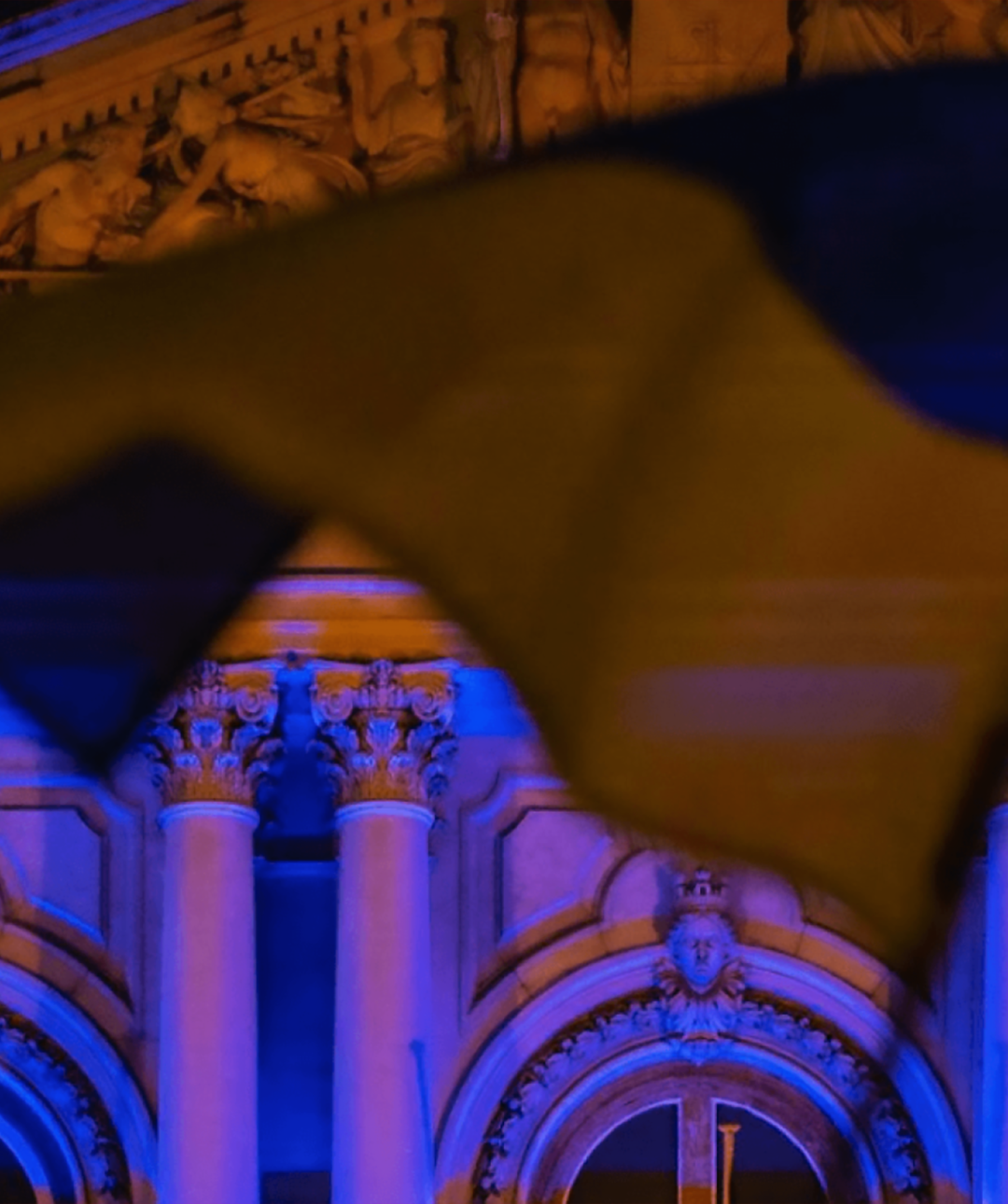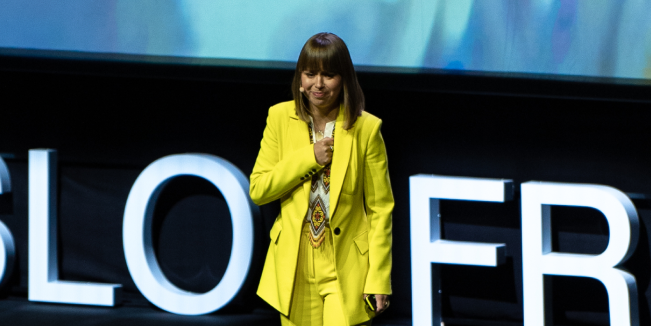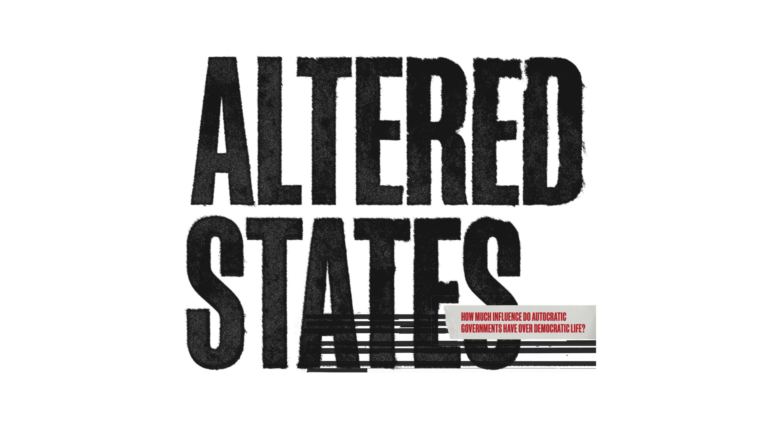John Jamesen Gould: Why is democracy faltering in so many places?
Francis Fukuyama: It’s a complicated phenomenon with a lot of different dimensions. There’s a geopolitical dimension: From the fall of communism in Eastern Europe in 1989 roughly to the time of the financial crisis in 2008, the United States was really the only superpower in the world—and could set a lot of global rules to follow its liberal-democratic ideas.
Since, we’ve seen the rise of two great authoritarian powers, Russia and China, and the emergence of an era when the U.S. is no longer the only superpower. These rising powers don’t just represent alternatives to the Western order shaped primarily by the United States, either; they have agendas that deliberately challenge this order and the liberal-democratic ideas it’s based on.
In Russia’s case, that’s most obviously been by invading Ukraine—which isn’t just an attack on Ukrainian democracy but a challenge to the entire order that took shape after 1991, when democracy spread into the former Soviet Union and formerly communist countries in Eastern Europe that it had dominated.
In China’s case, Beijing clearly feels that the West—and the United States in particular—has humiliated it by dominating the international system, keeping China from its rightful place. And the challenge from China is a challenge from a much bigger, much more sophisticated power than Russia.
But then, along with this geopolitical dimension, there’s been an internal challenge across many countries that have been established democracies—in the upsurge of intolerant, right-wing populism. We’ve seen this around the world, including in places like Hungary and Poland, but above all in the United States and in India—the world’s two largest democracies.
Here too, the causes are complicated. Within rich societies, globalization had the effect of creating inequalities, and a lot of working-class people started to feel their jobs were being taken away by elite decision-makers, as these jobs moved overseas. At the same time, much of the fighting has ended up being over cultural issues. A few years ago, those centered on immigration; now they center on issues of civil rights and gender rights, like opposition to critical race theory, transgenderism, and so on.
And these two dimensions have joined, in a way, because the one hope Vladimir Putin has for prevailing over Ukraine, as I see it, is that Donald Trump is reelected and the Republicans return to power in the U.S., where they could well switch sides in the war.
I think there’s another internal challenge, though, that’s coming from progressives—in the United States and in other democracies—a lot of which centers on orthodoxies about identity and a lack of toleration toward views that question them. In certain spaces, like universities and Hollywood and the arts—more culturally elite types of spaces—that kind of orthodoxy can be very smothering. So there’s a left-wing illiberal tendency we’ve seen spreading as well.
And the two tendencies, right and left, have been feeding off of each other. I really think a lot of the support for Trump and now Ron DeSantis, and other populist conservatives, for instance, comes out of a reaction to what’s been happening on the progressive left.
Gould: How do you understand the role of media and communications technology in driving this illiberal dynamic between right and left?
Francis Fukuyama: It’s central. We’ve seen a waning of mainstream or legacy media sources—television networks, public broadcasters, major newspapers, and so on—and their displacement by alternative kinds of media. On the one hand, there’s been a proliferation of niche media properties for fragmented audiences; on the other, there’s been the rise of big social-media platforms, and media companies dependent on them, with business models that thrive not on providing high-quality information or interpretations but on viral content.
The second has contributed very significantly to political polarization, particularly in the United States—because virality in news media favors more extreme voices over more moderate or measured, or empirically grounded ones.
In this respect, I think, things are apt to get worse. One phenomenon we’re seeing now, driven by artificial intelligence, is the emergence of deep fakes—hyperrealistic, digitally manipulated photos and videos in which people appear to be doing or saying things they never actually did or said. I suspect that in a couple of years, deep fakes will be so widespread that nothing we see—nothing that’s digitally produced—will be trustworthy, and people will interpret what they see more and more in terms of their polarized biases.
So with the fragmentation and polarization of our media universe, we have a decline in broader social trust, and then with development like deep-fake technology we have the potential for that broader social trust to decline even more sharply—making it much harder to get to deliberation and much harder to reach any kind of democratic consensus.
Gould: Do you see any positive counter-developments or ways out of this set of problems?
Fukuyama: I certainly don’t see a way out immediately. But if you look at the history of technology, there’s always been a kind of arms race between certain technological developments and counter-developments intended to address problems with them—along with the kind of regulation that’s necessary with media and communications technology. And the regulation always advances much more slowly than the technology.
As an example of this kind of technological arms, if we think about how we’re going to deal with deep fakes, we’ll need an authentication technology for that—something an original photograph or video can be stamped with and people can see the chain of custody through. Technologically, that’s possible; in fact, it’s an important potential application of blockchain technology.
The trouble is that, right now, there are many times the resources and work going into creating deep fakes than there are going into creating the antidotes to the deep fakes. And unfortunately, I expect that things have to get a lot worse—to a point where people begin to see the consequences of the problem and then pay attention to some of the potential solutions—before they get better.
But the technological change is moving very, very fast; it can sometimes take decades for society to catch up with it; and in this case, we may not have that much time.
Gould: You see the question of potential solutions to the problems of misinformation, disinformation, and fake news in terms of a technological arms race. How do you see the question of potential solutions to the problems of fragmentation and polarization—and the illiberal tendencies they’re driving?
Fukuyama: It’s a very complex question because, again, the sources of fragmentation and polarization are so complicated. They’re rooted in economics and inequality; they can be expressions of cultural alienation; and so on. But on the underlying psychology of the phenomenon, I personally think one of the most valuable books is from more than a decade ago—Jonathan Haidt’s The Righteous Mind: Why Good People Are Divided by Politics and Religion, where he talks about what he calls “motivated reasoning.”
Haidt says we tend to assume an old model of human rationality, where people take in information and interpret it, and then come to views about how the world ought to be as a result of that process—but this isn’t actually the way people really think; they way people really think, on the whole, is that we start with our preferences about how the world ought to be, and then we essentially use our cognitive faculties to take in the information that confirms our desired outcome.
So we tend to live with this constant confirmation bias that reinforces our preconceived views—and that reinforces information that seems to confirm what we want to believe is true. Polarized media deliberately plays to this tendency; and social media powerfully amplifies it, by allowing us to tailor the information that comes to us; but I think the basic force they’re manipulating is this desire to see the world in a certain way.
Gould: When we think about living with this tendency for “motivated reasoning”—and everything conspiring to intensify it and direct it into illiberal dynamics—to what extent do you believe in a global future for democracy?
Fukuyama: I’d say it’s pretty clear, first of all, that most people don’t like living in authoritarian societies. In recent years, we’ve seen the Arab Spring and outbreaks of rebellion in a number of other places around the world. And the problem leading to the failure of democracies in these places has fundamentally been in an inability of the people trying to establish democracy to govern well and sustain democratic rule. They haven’t been able to make that transition.
Meanwhile, many authoritarian systems look extremely strong and competent—up to the point when they collapse. And we’ve seen some big authoritarian failures over the past year—in Iran, with everything that led to the killing of Mahsa Amini and the protests following it; in China, with the zero-Covid policy; in Russia, with the biggest failure of them all in the invasion of Ukraine.
The disaster of this war is something that wouldn’t likely have happened if Russia were a more liberal society, if it weren’t just Putin ultimately making all the decisions—though he had to create buy-in from his society before he could go ahead with this one.
The zero-Covid policy in China, too, was the product of a single leader at the top, Xi Jinping, who continued with the policy way beyond the point when it made any plausible sense.
And in Iran, although the protest movement has died down, society is seething and it’s increasingly clear that a majority of Iranians don’t see the regime as legitimate anymore.
But I think the main thing democracy has going for it is the fundamental lack of any coherent alternative. Which was really the issue I was trying to address in my End of History book back in 1992. This wasn’t an argument that democracy would necessarily triumph everywhere—certainly not in the next generation. It was an examination of the question of whether there was another political system that’s coherent, stable, flourishing—and not democracy. And I simply don’t see that in the world.
Which means, in the end, people are going to have to come back to democracy—if they want to have economic prosperity, if they want individual freedom, if they want to have security. I think this is what can give us the most optimism that, in the long run, there’s going to be a return to democracy around the world.
Gould: Churchill’s epigram: “Many forms of government have been tried and will be tried in this world of sin and woe. No one pretends that democracy is perfect or all-wise. Indeed, it has been said that democracy is the worst form of government except for all those other forms that have been tried from time to time.”
Fukuyama: And it may be the case that you need to have a certain vivid experience of the alternative to democracy before you truly appreciate how important it is. I think the Ukraine war has done that for a lot of people, actually. They may have seen problems with Ukrainian democracy, and now they can see very vividly how bad the alternative is.









